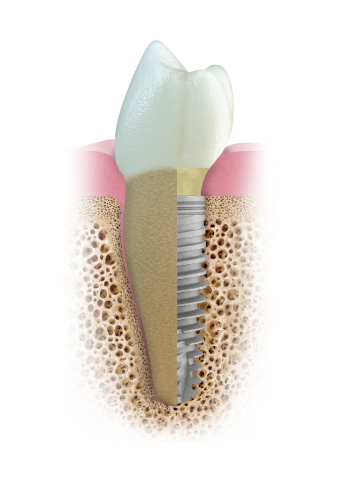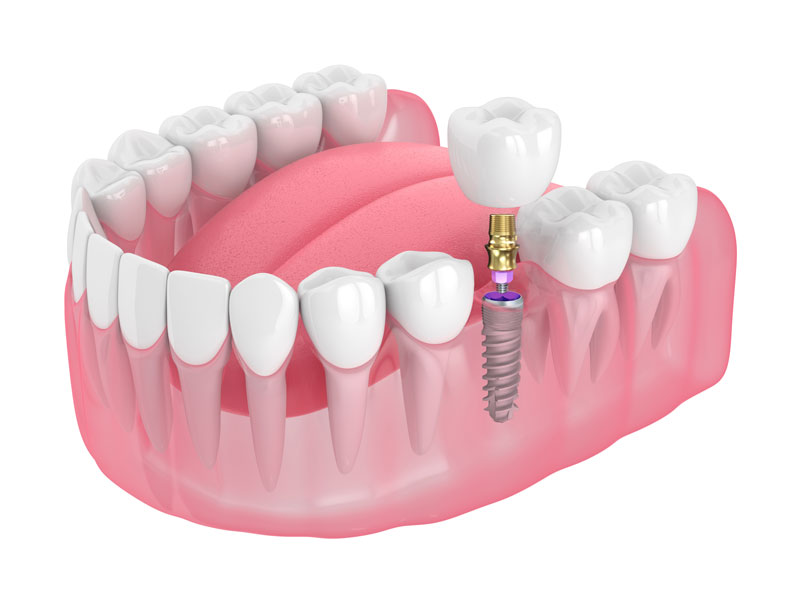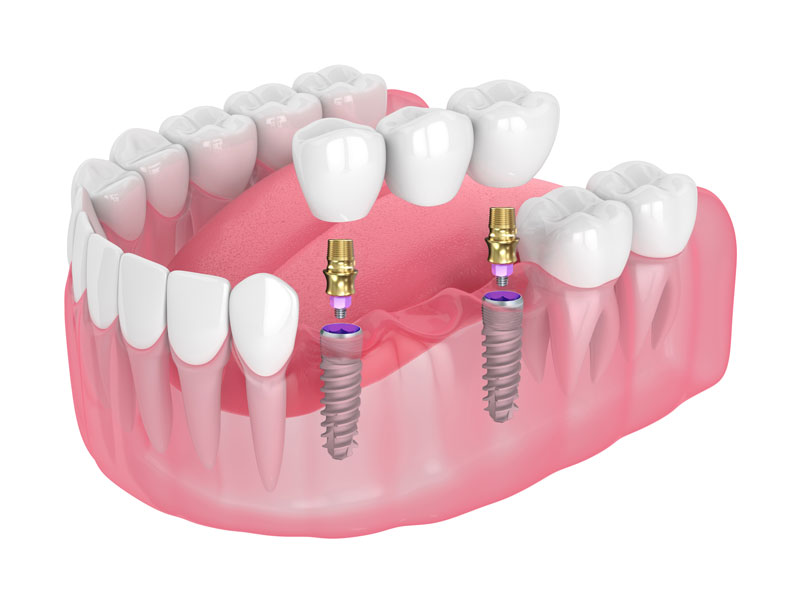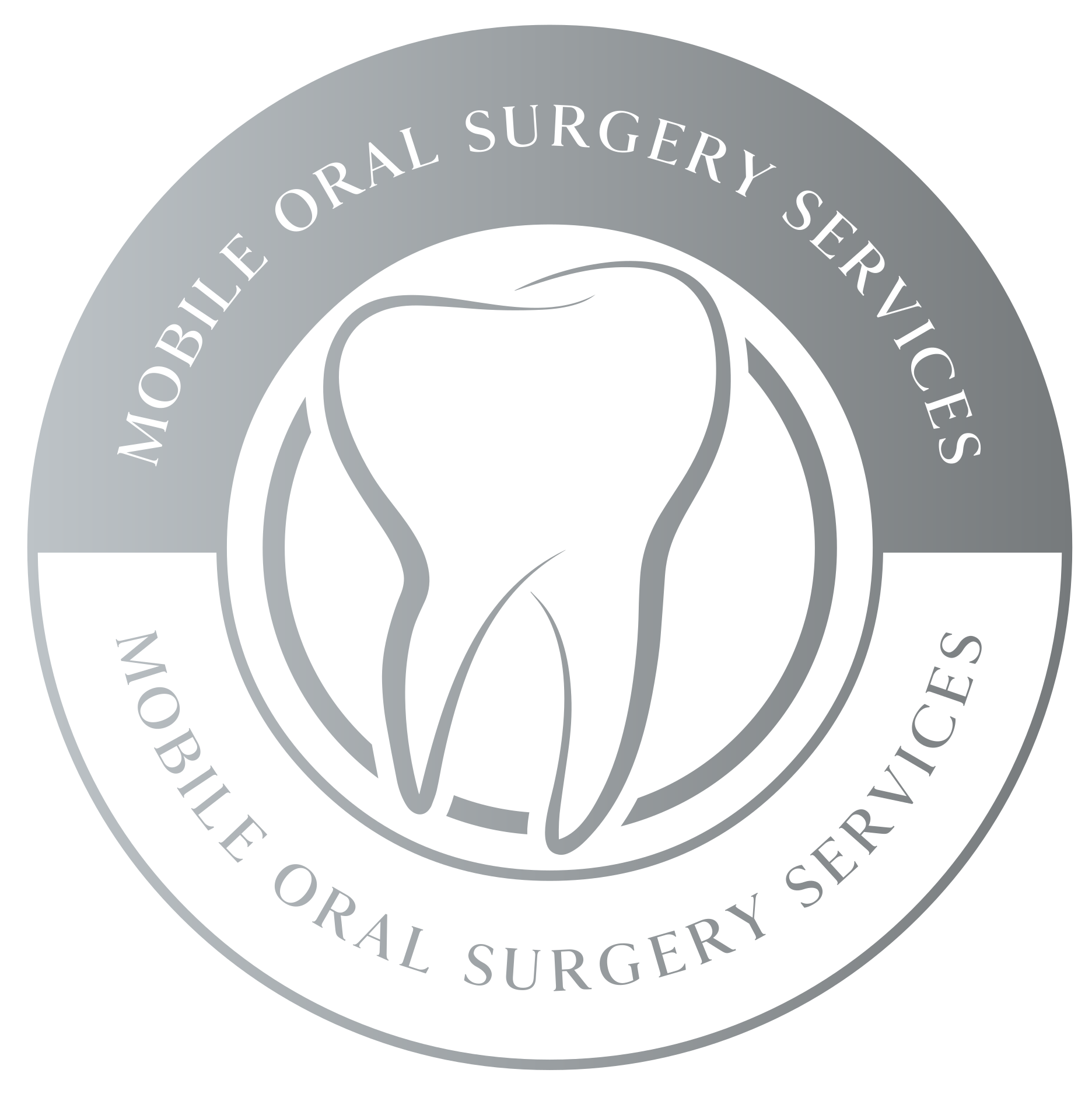Dental Implants


What are dental implants?
What happens during the dental implant procedure?
Who are dental implants suitable for?
Who are dental implants NOT suitable for?
What is the best age to get dental implants?
How much do dental implants cost?
How are dental implants used to replace a single tooth?
How are dental implants used to replace multiple teeth with a fixed bridge?
How are dental implants used to restore a full arch of teeth when all the teeth are missing (edentulous)?
What are ‘all on 4’ dental implants?
What are the side effects of dental implant surgery?
How long do dental tooth implants last?
What are the benefits of dental implants?
What are the post operative instructions after the surgical placement of the dental implant?
- A dental implant is a treatment in dentistry that replaces a missing body part (your tooth!)
- A dental implant is a titanium screw that is used as an anchor to hold a ceramic crown in order to replace a missing tooth or teeth.
- While other options exist for replacing a missing tooth or teeth such as no treatment, a removable denture and a fixed bridge, dental implants feel, function and appear almost identical to natural teeth and are considered the gold standard in replacing natural teeth.

- The surgical placement of a dental implant into your jaw bone is a short procedure, and can be comfortably undertaken under our complimentary happy gas sedation (provided no medical contra-indications are present). Fabrication and delivery of your dental crown (placed onto your dental implant) usually takes two brief clinical appointments.
- Dr Daniel utilizes a custom made surgical guide which is fabricated prior to your procedure utilizing prior scans of your jaw, to enable precise, safe & efficient surgical placement of the dental implant.
- A couple months later, after the dental implant has fused to the jaw bone, it is ready to be loaded with a dental crown, which is usually provided by your general dentist.
- Additional appointments may be required in certain clinical situations and if required you will be informed of this at your consultation appointment.
- Dental implants are suitable for the majority of the population who have no / minor or well controlled medical conditions and have good oral hygiene & oral health in order to maintain the dental implant.
- Patients commonly NOT suitable for dental implants include the following
- Elderly
- Severely immunocompromised
- Radiotherapy to the jaws
- Certain medications which impair healing such as bisphosphonates, chemotherapy & other immunosuppressant medications
- Uncontrolled periodontal disease
- You will be advised of the potential benefits and risks of a dental implant in your clinical situation at the consultation appointment.

- The best age for dental implants is as an adult after growth has ceased (typically > 21 years old). If growth has not ceased, there is a risk that the jaw bone grows over the dental implant which gives the appearance of the dental implant being submerged (shorter) relative to the adjacent teeth.
The prices for surgery depends on the type and complexity offered and a formal quote will be provided at the consultation appointment. Consultation appointments are held by teleconsult for 20 min and has a fee of $90.
- A dental implant is used as an anchor in the jaw bone to support a dental crown as depicted.


- Two or more dental implants can be used as an anchor in the jaw bone to support multiple teeth bonded together (fixed bridge) as depicted.

How are dental implants used to restore a full arch of teeth when all the teeth are missing (edentulous)? What are ‘all on 4’ dental implants?
- ‘All on 4’ dental implants refers to a complete set of naturally appearing prosthetic teeth that is supported on four strategically placed dental implants in order to restore function and aesthetics to an edentulous jaw, as depicted.

- Minor soreness, swelling and/or bleeding for a couple of days is expected, although these are usually not significant enough to interfere with your working schedule.
- More than 96.8% of dental implants survive after 10 years research on more than 10,000 implants show.
- However, poor oral hygiene, diabetes and cigarette smoking, if present, can compromise the longevity of your dental implant.

Dental implants can
- Replace severely damaged, unrestorable or missing teeth to restore appearance and function
- Look, feel and function very similar to a natural tooth
- Compared to removable dentures, they have greater stability, aesthetics & comfort.
- Compared to a fixed dental bridge, avoids recontouring (and thus potential injury) to the adjacent teeth
| Feature | Do | Don’t |
|---|---|---|
| Rest | Return to work same day Usual activities of daily living |
Perform strenuous activity for 3 days |
| Nutrition | Aim to drink over 1-1.5L of water / day Regular diet |
Drink hot and cold foods for 6 hours after the procedure Hard or sharp foods such as nuts & chips for the first 2 weeks alcohol for 2 weeks |
| Oral hygiene | Brush teeth twice a day Gently rinse 10mLs of the curasept mouthrinse in your mouth for 30 seconds then spit out, four times a day, until the bottle is finished. |
Brush the surgical site Leave food remaining stuck at surgical site (rinse it off) Smoke for one month |
| Pain | Teeth may be sore for a couple of days Take two 500mg paracetamol tablets four times a day for 2 days then as required Take one 200mg Neurofen tablet three times a day as required |
Take Neurofen for more than 5 days |
| Swelling | Be aware of swelling. Usually there will be a minimal amount of swelling from the surgical site which may increase for 2 days before resolving by the end of the week | N/A |
| Bleeding | Stem bleeding. The surgical site might bleed slowly on and off for a couple of days after the procedure Place gauze over the surgical site and apply firm pressure for 30minutes. If bleeding re-occurs, repeat this step. |
Don’t check the bleeding every 5 minutes once you have placed the gauze there (it usually takes 30 minutes for the bleeding to settle with firm pressure) |

